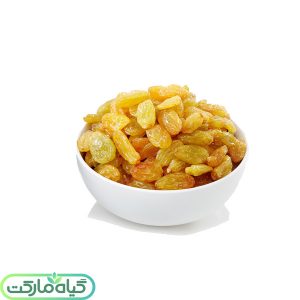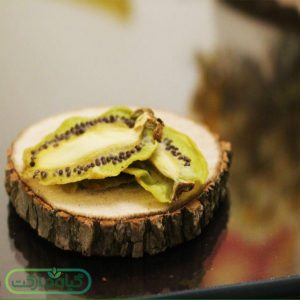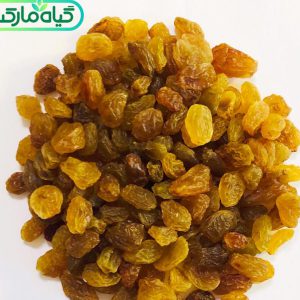Description
Raisin
Raisins are small and sweet wrinkled dried grapes that are found in green, yellow, brown and black color with and without seed, mainly found in Iran and other countries.
There are different types of green and yellow raisin, golden raisin , black and brown raisin in the form of sun dried and Tizabi Raisin.
Production of Iranian raisin
Raisins are made by drying grapes, which are the raw material for making raisin, in the sun or in the shade.
To prepare 1 cup of raisin, more than 4 cups of grapes are needed, and to produce a good type of grapes, these grapes must have special properties, including that they must ripen quickly and be easy to dry.
In addition, they should have a pleasant soft texture and taste.
There are several ways to produce raisins. The most popular is this natural method which will be explained in detail.
The basic steps in the production of natural raisins include harvesting, processing and packaging.
A small portion of raisins are made by mechanically dehydrated grapes, but most are produced by drying under the sun.
The first step to producing good raisins is to grow quality grapes in the vineyards.
Grape farming is a year-round commitment and includes pruning, irrigation, fertilization and pest control.
Most of the work done in these vineyards is still done by hand.
Pruning involves removing parts of the vine to control its growth pattern.
Irrigation is done during the summer while the vines are growing to maintain a constant source of water in the vineyard soil.
While not all vineyards require fertilizers, some grapes require nitrogen and zinc fertilizers.
Vineyards are prone to various diseases and insects, so it is very important to control these factors.
Chemicals and biologics are used to control insects. Sulfur is also used to prevent the growth of mold and other fungi.
Grapes are harvested in August and September.
At this time of year they are in their desired sweetness.
The bunches of grapes are placed on paper trays, which are placed between rows of vines on the ground.
Depending on the weather, the grapes should be dried on trays for two to four weeks.
During this period, the moisture content of the grapes decreases from 75% to below 15% and the color of the fruit changes to purple-brown.
At night, the trays are rotated to minimize sand accumulation and protect against raisin moth contamination.
Paper trays come with a compound that kills insects and dries grapes.
They are then collected in a box or bucket.
When the fruits arrive at the factory, they are emptied on the wire plates and shaken to remove dirt and other unwanted material.
They are also inspected for color, taste and moisture to ensure compliance with previously specified specifications.
Dried grapes are transported from the storage bin to the processing plant.
Here they are emptied on a conveyor and mechanically modified. Remaining sand and other debris are first removed by pulling raisins on a fine mesh plate while air is blown on them. Immature fruit is removed by suction machines.
The raisin stick is then removed by shaking.
The stem on each raisin is removed by passing through two rotating surfaces.
If there are seeds in raisins, they are mechanically destroyed.
After completing all these processing steps, the raisins are passed through a series of plates to be sorted according to size.
Characteristics of Iranian raisins
Most raisins are small, dark and wrinkled. They taste like grapes made from it, but the drying process that causes them to thicken the amount of sugar and make them much sweeter
. They are a natural food due to their low humidity and low pH.
Raisins are actually composed of important nutrients such as sugar, fruit acids and mineral salts.
Fruit acids such as folic acid and vitamin B6 are found in raisins. Important minerals in raisins include calcium, magnesium and phosphorus.
In addition, iron, copper, zinc and other nutrients are found in small amounts in raisins. Given the composition of raisins and the fact that they are fat-free, it is not surprising that this fruit is a healthy snack.
Types of Iranian raisins
In Iran, raisins can be divided into green raisins, golden raisins, sun-dried and sour raisins, plum and sultana raisins, and brown and black currants. In Iran, more than 200 types of grapes have been named in different languages, but it is obvious that most of these names are related to a case that has found different names in different places.
Characteristics of raisin
Raisins are fat-free and cholesterol-free, have antioxidants and an excellent source of fiber.
Raisins can relieve constipation. Preventing anemia and building strong bones and protecting teeth are some of the properties of raisins. Reduces heart disease.
Consumption of Iranian raisin
Raisins are usually served as a salad mixed with oatmeal in granules or cereals,
and You may also eat them in delicious cookies, breads and cookies.
Sale and export of Iranian raisins
Iran is the world’s third largest exporter of raisins, exporting 92,000 tons (7% of world consumption) worth about $ 70 million a year.
There are different types of Iranian raisins. Sultana Raisins, Golden Raisins, Black Raisins and Green Raisins.
The advantage of Iranian raisins is its price and different processing methods, and that is why Iranian raisins are among the best raisins in the world.
Iranian raisin markets
Raisins are exported every year from Iran to neighboring countries such as Azerbaijan, Pakistan, Dubai, India, Ukraine and mainly the United Kingdom, and this number is expected to increase because raisins are known as a healthy snack.
Packing of Iranian raisins
Raisins can be included in a variety of packaging Kraft envelope packaging with 100 to 500 grams, 100 to 500 gram chips packaging,Carton packaging put 1 to 10 kg carton. Of course, since small packages require hand-picked raisins, the costs will be higher.
Then they are packed on trucks and sent to customers.
The whole process of receiving raisins in the factory, processing them and putting them in packaging is done with great care.
All kinds of fresh and quality Iranian raisins for export with the best packaging and special prices are available in the plant market. Contact our consultants for information on prices and advice for buying and selling raisins and exporting raisins






Reviews
There are no reviews yet.